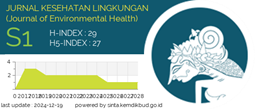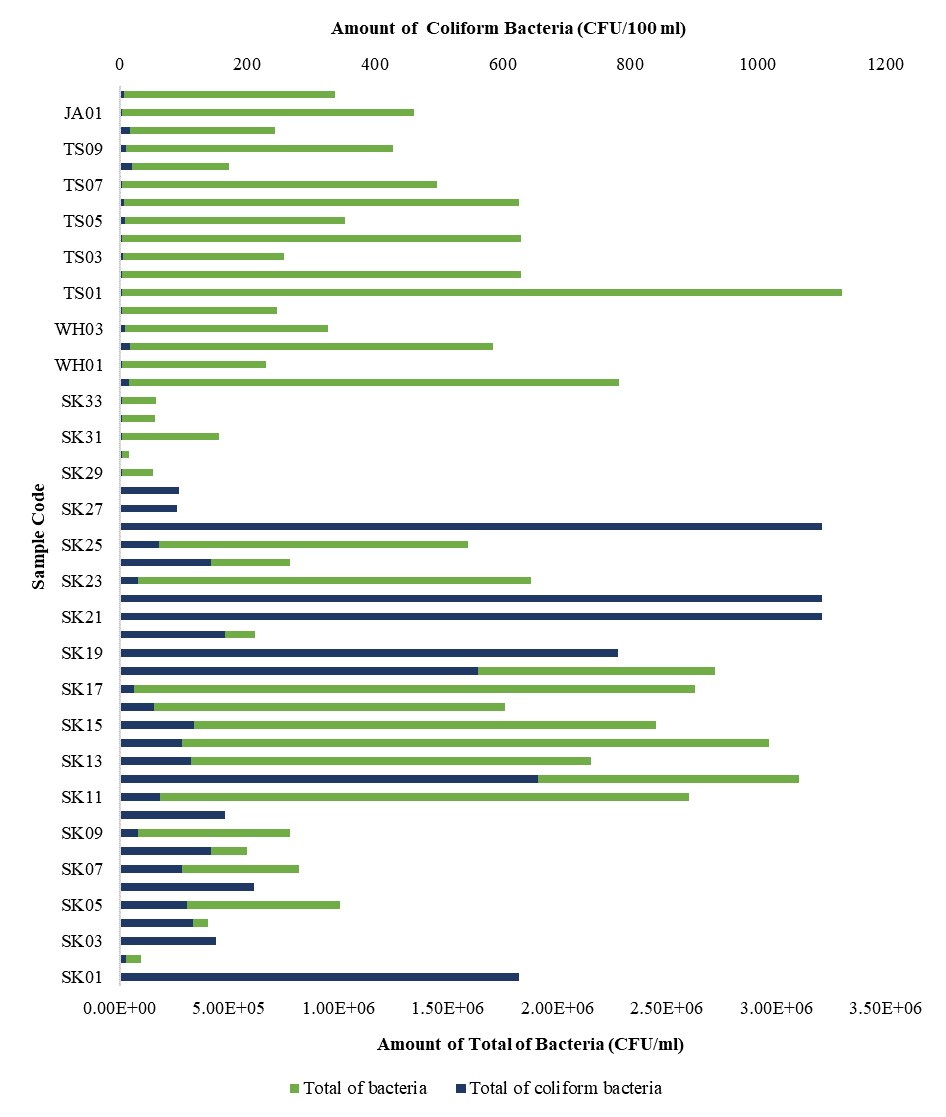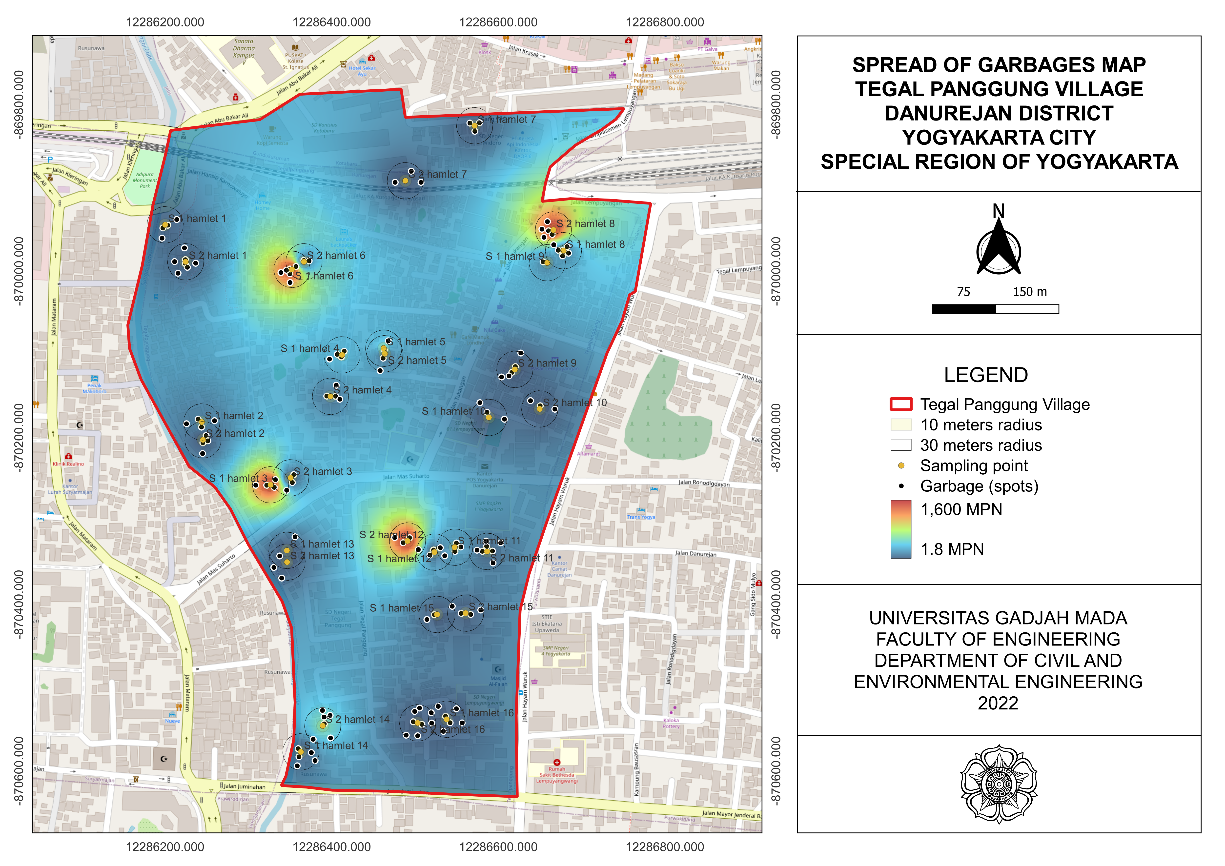Implementation of Good Maufacturing Practices (GMP) in the Kitchen Hospital
Downloads
Abstract: Food safety is one of the important thing in public health improvement in Indonesia. Hospitals are required to keep food safety for patients by conducting the principle Good Manufacturing Practices (GMP). The purpose of this research to -identify the application of GMP in Installation Nutrition Hospital. Design of this study was using descriptive research in observational method with cross sectional design. Variables the treatment were the physical building, utility, equipment, storage, and food handlers. Data collection was done by observation and interview. The research results show that the variable subjects enough to fulfi l with Kepmenkes No. 1204 of 2004 and Thaheer, 2008. But there were several that must be considered as location, building, fl oor, ventilation, lighting, kitchens temperature, storage temperature of food that were not appropriate. sorting and processing of solid waste, hand washing facilities, drink water quality, storage temperature of food that were not appropriate, behavior the use of a mask and gloves while working. This suggestion are increase the open window as ventilation, turning lights when a food processing, adding exhauster for good air circulation, do the processing of solid waste, given the tool dryer, controlling at a temperature storage food, health check on rectal swab of food handlers is routinely, and sanctions or fi ne associated disobedience of food handlers in the use of mask and gloves while working.
Keywords: Good Manufacturing Practices, food handlers, food safety
Awua, A., Kofi, W., Ngunjiri, P., Anlobe, J., Kpodo,
K., Halm, M., Ewurafua, A.H., dan Jakobsen, M.
The Effect of Applying GMP and HACCP to
Traditional Food Processing at a Semi-Commercial
Kenkey Production Plant in Ghana. Food Control,
(11): 1449–1457.
Dharma, S., dan Gunawan. 2003. Higiene dan Sanitasi
Makanan Jajanan di Simpang Selayang Kelurahan Simpang Selayang, Kecamatan Medan Tuntungan,
Sumatera Utara. Jurnal Universitas Sumatera Utara,
,34–44.
Ifeadike, Ironkwe, Adogu, and Nnebue. 2014.
Assessment of The Food Hygiene Practices of Food
Handlers in The Federal Capital Territory of Nigeria.
Tropical Journal of Medical Research, 17(1): 10-
Diakses dari http://www.tjmrjournal.org/article.
asp?issn=1119-0388;year=2014;volume=17;issu
e=1;spage=10;epage=15;aulast=Ifeadike.
Depkes RI, 2004. Keputusan Menteri Kesehatan
Republik Indonesia Nomor 1204 Tahun 2004 tentang
Persyaratan Kesehatan Lingkungan Rumah Sakit.
Lidya, D. 2011. Hubungan antara Pengetahuan dan
Sikap tentang Higiene Sanitasi Makanan dengan
Praktik Penjamah Makanan di Instalasi Gizi RSUD
Sunan Kalijaga Kabupaten Demak Tahun 2010.
Skripsi. Universitas Negeri Semarang.
Meikawati, W., Asturi, R., dan Susilawati. 2010. Hubungan
Pengetahuan dan Sikap Petugas Penjamah Makanan
dengan Praktek Higiene dan Sanitasi Makanan di
Unit Gizi RSJD Dr. Amino Gondohutomo Semarang.
Jurnal Kesehatan Masyarakat Indonesia, 6(1),
–68.
Murray dan McAdam. 2007. A Comparative Analysis
of Quality Management Standards for Contract
Research Organisations in Clinical Trials. International
Journal of Health Care Quality Assurance, 20(1),
–33.
Mutalib, N.A., Rashid, M.F., Mustaf, S., Nordi, S., Hamat,
R.A., dan Osman, M. 2012. Knowledge, Attitude and
Practices Regarding Food Hygiene and Sanitation
of Food Handlers in Kuala Pilah, Malaysia. Food
Control, 27(2), 289–293.
Nicolas, Abdoul, Aly, Amadou, Jules, dan Alfred. 2006.
Hygienic Status Assessement of Dish Washing Waters, Utensils, Hands and Pieces of Monies from
Street Food Processing Sites in Ouagadougou
(Burkina Faso). African Journal of Biotechnology,
(11): 1107–1112.
Oyeneho and Hedberg. 2013. An Assessment of Food
Safety Needs of Restaurants in Owerri, Imo State,
Nigeria. International Journal of Environmental
Research and Public Health, 10(8): 3296–3309.
Sani, A., dan Siow, O.N. 2014. Knowledge, Attitudes and
Practices of Food Handlers on Food Safety in Food
Service Operations at The University Kebangsaan
Malaysia. Food Control, 37, 210–217.
Schlundt, J., Toyofuku, H., Jansen, I., dan Herbst, S.A.
Emerging food-Borne Zoonoses. Rev Sci Tech,
: 513–33.
Somwang, C., Charoenchaichana, P., dan Polmade, M.
The Implementation of Good Manufacturing
Practices (GMP) System in the Poultry Industry:
A case study of the hatchery in Saha Farms Co.,
Ltd, Thailand. International Journal of Humanities
and Management Sciences (IJHMS), 1(1):
–4044. Diakses dari http://www.isaet.org/
images/extraimages/IJHMS%200101227.pdf.
Susanna, D., dan Hartono, B. 2003. Pemantauan
Kualitas Makanan Ketoprak dan Gado-Gado di
Lingkungan Kampus UI Depok Melalui Pemeriksaan
Bakteriologis. Makara, Seri Kesehatan, 7(1): 22–23.
Thaheer, H. 2008. Sistem Manajemen HACCP (Hazard
Analysis Critical Control Point) (2nd ed). Jakarta:
PT. Bumi Aksara.
Tungwongchai. 2001. GMP: The regulations for food
production. Academic Service Center Journal, 10(3):
–64.
Varzaka, T.H., dan Ioannis, S.A. 2008. Application of
ISO22000 and Comparison to HACCP for Processing
of Ready to Eat Vegetables. Int J Food Sci and
Technol, 43(10): 1729–1741.
2. Formal legal provisions to access digital articles of electronic journal are subject to the provision of the Creative Commons Attribution-ShareAlike license (CC BY-NC-SA), which means that Jurnal Kesehatan Lingkungan is rightful to keep, transfer media/format, manage in the form of databases, maintain, and publish articles.
3. Published manuscripts both printed and electronic are open access for educational, research, and library purposes. Additionally, the editorial board is not responsible for any violations of copyright law.
JKESLING by UNAIR is licensed under a Creative Commons Attribution-ShareAlike 4.0 International License.







































